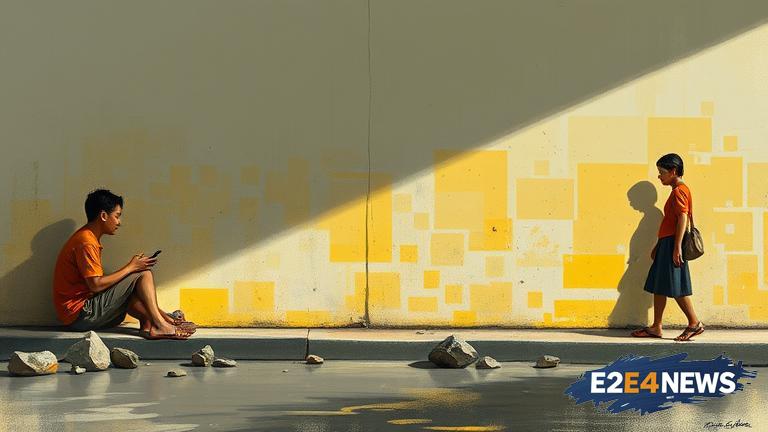The Philippines, an archipelago of over 7,000 islands, is a country with a diverse population of more than 110 million people. Despite its rich natural resources and growing economy, the country still grapples with social inequality, where not everyone has access to the same opportunities. This issue is deeply rooted in the country’s history, with the gap between the rich and the poor continuously widening. The lack of access to quality education, healthcare, and employment opportunities has hindered the growth and development of many Filipinos. Furthermore, the country’s justice system has also been criticized for being biased towards the wealthy and powerful, leaving the marginalized and vulnerable populations to suffer. The recent opinion piece published in the Philippine Star serves as a reminder that not everybody has the same chance to succeed in life. It highlights the struggles of the common Filipino, who faces numerous challenges in their daily lives, from making ends meet to accessing basic services. The article emphasizes the need for the government and the justice system to address these inequalities and ensure that everyone has an equal opportunity to succeed. The Philippines has made significant progress in recent years, with the implementation of various social programs and policies aimed at reducing poverty and inequality. However, more needs to be done to address the root causes of these issues. The country’s economic growth has not been inclusive, with the benefits of growth mostly accruing to the wealthy and powerful. The lack of access to quality education and employment opportunities has resulted in a large number of Filipinos being trapped in low-paying and precarious jobs. The article also highlights the importance of access to justice, which is a fundamental right of every Filipino. However, the country’s justice system has been criticized for being slow and inefficient, with many cases taking years to be resolved. The wealthy and powerful often have the means to manipulate the system, leaving the poor and marginalized to suffer. The article concludes by emphasizing the need for a more inclusive and equitable society, where everyone has access to the same opportunities. This requires a concerted effort from the government, the private sector, and civil society to address the root causes of social inequality. The Philippines has the potential to become a more prosperous and equitable society, but it requires a commitment to addressing the issues that have held the country back for so long. By working together, Filipinos can create a brighter future for themselves and for generations to come. The article serves as a reminder that social inequality is a complex issue that requires a comprehensive and multifaceted approach. It requires a commitment to addressing the root causes of poverty and inequality, and ensuring that everyone has access to the same opportunities. The Philippines has made progress in recent years, but more needs to be done to address the issues that have held the country back. The government, the private sector, and civil society must work together to create a more inclusive and equitable society. The article highlights the importance of access to education, healthcare, and employment opportunities, as well as access to justice. By addressing these issues, the Philippines can create a brighter future for all its citizens. The country’s social inequality is a reminder that there is still much work to be done to create a more just and equitable society. The article serves as a call to action, urging Filipinos to work together to address the issues that have held the country back. By doing so, the Philippines can become a more prosperous and equitable society, where everyone has access to the same opportunities.
